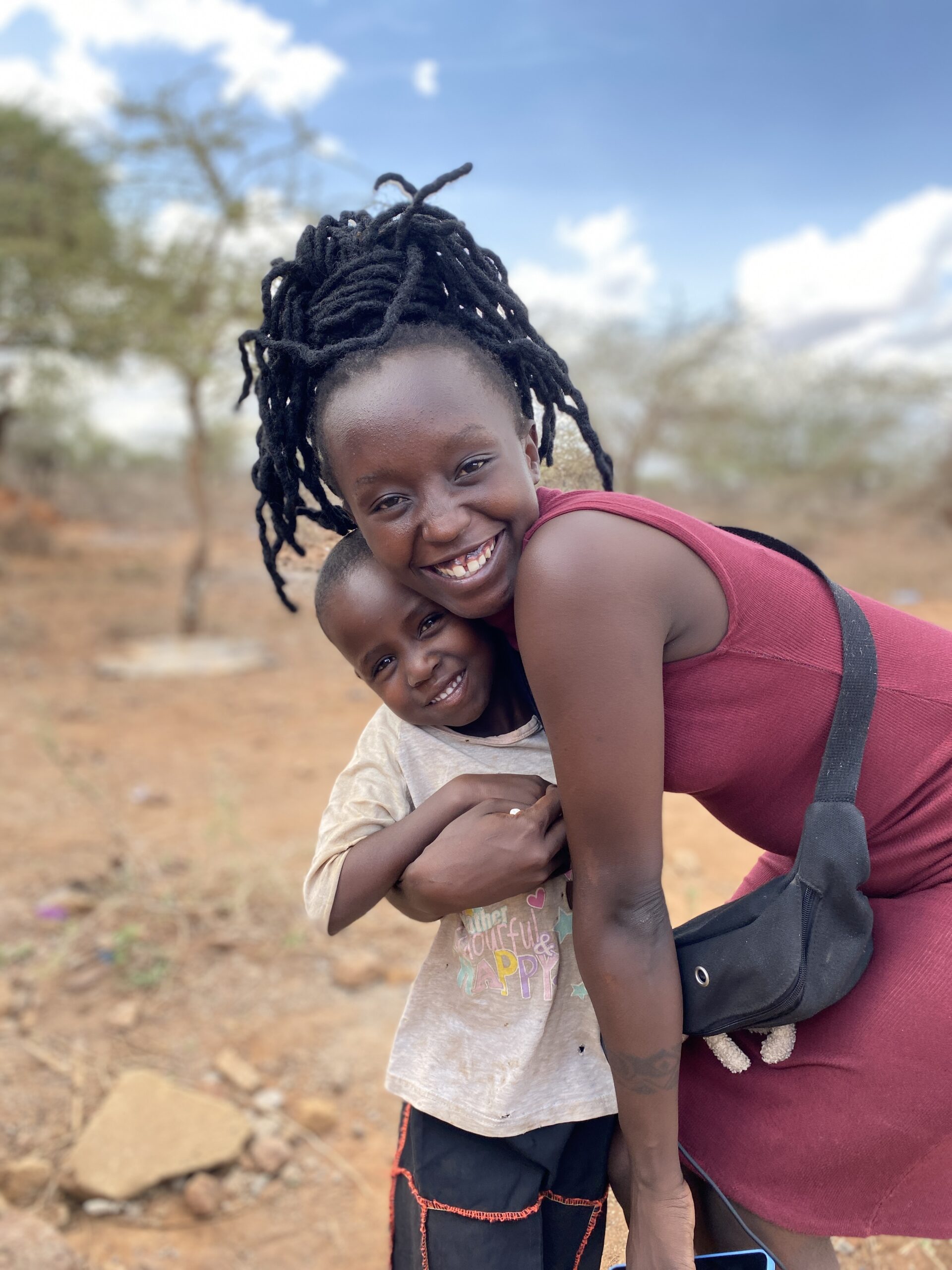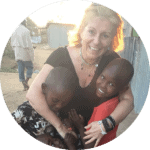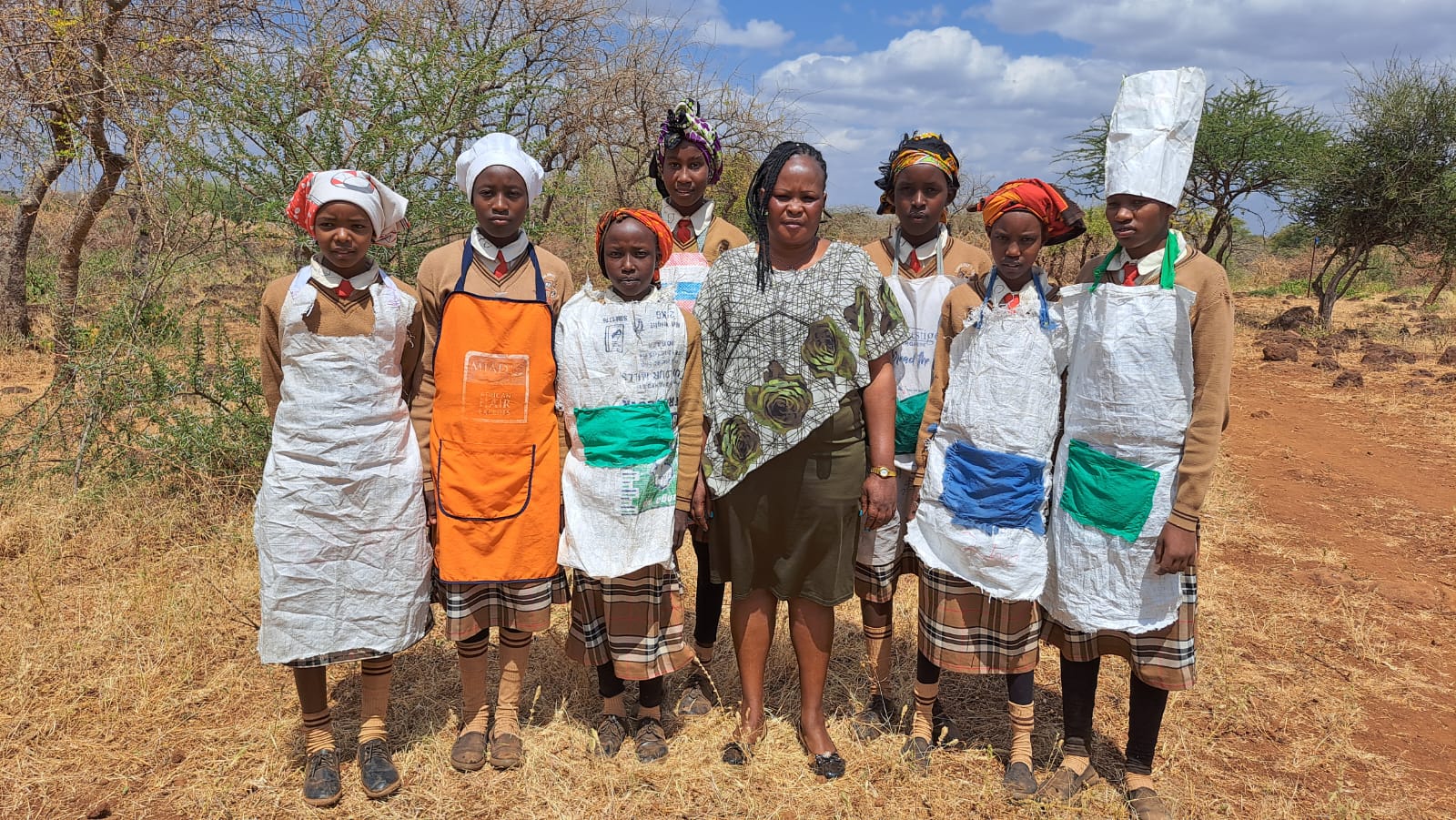Our trip to Kenya in November 2022 was an intense and moving experience. The situation on the ground, exacerbated by the prolonged drought, is dire across all three schools we support. We are particularly concerned about Immpirrishi, where we are the only organization that visits periodically to provide care and support for the pupils.





Iloshon School
Iloshon is located in the Rift Valley, about 10 km from Mile 46. The elementary school in Iloshon has 423 pupils. The population here is suffering deeply from the drought, though several international organizations have already stepped in to help, including drilling a borehole and providing a 100 m³ water tank and wash stations for the school. However, the animals in Iloshon are struggling to find enough food in the savannah, and the price for emaciated cows and goats has plummeted. Weak animals now fetch around KES 1,000, down from KES 40,000-60,000.
At the same time, the prices for staple foods like ugali, cabbage, maize flour, beans, sugar, salt, and cooking oil have skyrocketed due to inflation. Transport costs have also been affected by rising prices.
At the request of the Deputy Head Teacher and the Head Teacher, we are now sponsoring a daily lunch for the children for the last few weeks of the semester. This meal is helping ensure that the children come to school regularly. According to the teachers, the children often arrive dehydrated, hungry, and tired, sometimes unable to participate in lessons. During our visit, we saw children in PP1 and PP2 sitting with empty bowls in their hands, eagerly awaiting their lunch. For many, this meal is often their only one for the day.
Iloshon is also undergoing changes due to the new curriculum. An Italian NGO is currently building two classrooms for junior high school students, and plans for a secondary school are in the works. However, the construction of a required laboratory for the secondary school remains unfunded. Without it, the school cannot be officially registered.
The school also houses around 70 girls in the Nasaru Learning Center, which we helped establish. In addition to providing boarding for 53 girls, we offer sewing courses for both the girls and their mothers. The program has been very well received. We also aim to establish an infirmary and a hairdressing/barbering shop to provide the students with additional career skills. Plans are also underway to offer prospects for male students, with plans to send selected students to the Masai Technical Institute in Kajiado.
Despite these efforts, some boys are boarding in former teachers’ quarters under very questionable hygienic conditions.
The community is supported by various charitable organizations: A borehole has been drilled and a 100 m3 water tank has been installed. Of course, the presence of water helps a lot. The problem, however, is that the support has been sporadic, with no coordinated effort between the charitable organizations
While many charitable organizations support the community, the approach has been sporadic, with no coordinated effort between the different organizations.








Immpirrishi School
Immpirishi Primary School is located in Tinga, Kiserian. About 800 families live around the school, i.e. about 5,600 people. There are currently 217 pupils enrolled at the school, but only 169 come to school on a semi-regular basis.
This area is suffering greatly from the drought, which has now lasted for over 2 years. The parents and also the children have to walk longer and longer distances with their animals in search of water.
We are currently the only organization that regularly goes there to provide water, food and education about FGM. We have been active there for two years.
The school has no water and the classrooms are made of corrugated iron, which heats up in the sun. They are in a terrible state and you often see snakes in the classes and ants build their piles there during the vacations. Termites eat the school books.
We are currently supporting 12 girls in this school who have been victims of FGM, with the aim of turning them into ambassadors against FGM and role models for the other girls. Three of the girls will be attending secondary school next year, and we will be supporting them. In addition, one of our employees visits every other month with a food delivery for the parents. During our visit, we also brought food and gifts for the teachers (beans, rice, oil for cooking, salt, sugar, soap, washing powder), exercise books for the children and a water delivery.
This school was in urgent need of a well or a large water tank. In addition, the nearest store is a 3-hour walk away – it is located in Tinga. Medical care for the population there is non-existent, FGM is practiced and the hygienic conditions are inhumane. We are also in contact with the circumciser/midwife and have brought her disinfectant, disposable gloves and disposable blades for births.






School Kings & Queens of Rehoboth
This school is a private school in the slums of Kitengela (Noonkopir).
In Kenya, private schools serve the poorest children, whose families cannot afford public school fees. This school is located right behind a large landfill, where some of the children’s parents search for recyclables during the day. The dump emits a terrible odor, and toxic fumes rise into the air, which is certainly harmful to health. Nearby, emaciated cows search for food, and vultures wait for an opportunity.
Currently, there are 170 children enrolled at Rehoboth, including refugees from Congo and children from surrounding slums. The absenteeism rate is high due to several reasons, including period poverty, where girls lack underwear and sanitary towels, forcing them to stay home during their periods. Additionally, many parents cannot afford to provide regular meals or even water for their children. Some children come to school very dirty and wash themselves at the school. Not all children wear school uniforms, which is mandatory in Kenya, and this could lead to additional inspections by the authorities.
Despite being a private school recognized by the government, Rehoboth receives no state support. With the introduction of a new curriculum, the school now requires new textbooks, and practical subjects such as chicken-keeping and knitting have been added, but there is no money for the necessary materials. Some children are unable to take their final exams because they do not have birth certificates.
The school has a water tank but lacks the funds to purchase water regularly. Providing regular meals at the school has helped increase parent motivation to send their children to school.
Problems in this school
- Absenteeism
- Period poverty
- Illiterate parents
- Missing birth certificates
- Lack of textbooks and teaching materials
- Inadequate school uniforms, underwear, socks, and shoes
- Insufficient funds for food and water
- Lack of a regular sponsor/supporter to cover fixed costs (rent, teachers, uniforms, meals)
- Domestic violence in many homes, exacerbated by the cramped living conditions
While the remote schools in the savannah face many problems, the issues in the slums of Kitengela are even more acute due to the extremely cramped living conditions that escalate tensions within families.
Rehoboth is financed entirely through donations. Prior to the pandemic, many volunteers sponsored individual children, but many of these sponsors have dropped off due to the impact of COVID-19. As a result, the school’s future is in jeopardy, and we have committed to covering the fixed costs of the school from 2023 onward.







After all these touching and impactful encounters, we are fully aware of the Herculean task ahead of us. But we also know that we are surrounded by incredible love and support—and we will be back!




